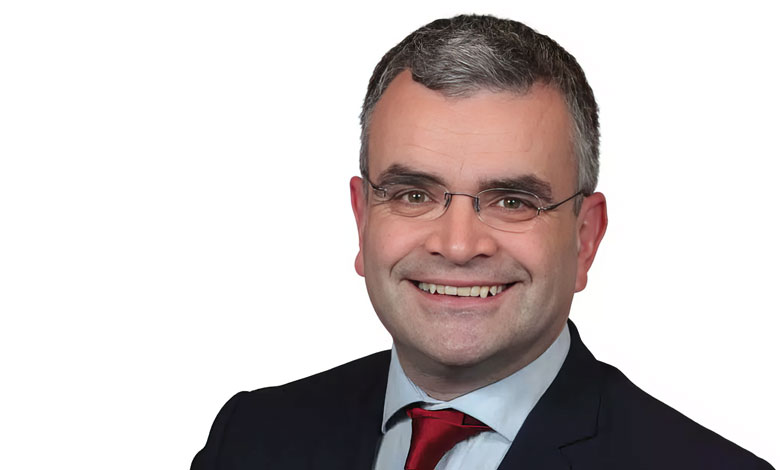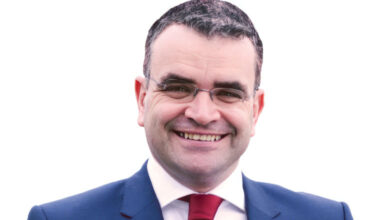Gaeltacht Minister Dara Calleary TD: Towards a bilingual public service

Top-tier provision of bilingual public services and employers for those with Irish or those wishing to improve their Irish language skills – that is the vision for the public sector in the coming period, writes Minister for Rural and Community Development and the Gaeltacht, Dara Calleary TD.
Central to the Government’s efforts in the move towards a bilingual public service is the full and successful implementation of the Official Languages Act. This work is critical in terms of embedding and normalising the Irish language as an integral part of the provision of public services in this country and enabling speakers of the language to use it in their dealings with the State.
In support of this work, the Government has set an ambitious recruitment target that 20 per cent of recruits to public bodies will have Irish by the end of 2030. Through working towards this goal, public bodies will ensure that they are adequately staffed to provide full and high quality bilingual services – particularly in the context of customer services and vulnerable services for the Gaeltacht and in general.
Of course this not a solitary goal, operating in a vacuum. It is part of the wider ecosystem being developed under the language legislation. The publication of the National Plan for Irish Language Public Services in October 2024 – the first national Government strategy in the history of the State for the provision of Irish-language public services – was a significant step forward in this regard. Extensive research was undertaken in preparation of this Plan, with the invaluable results set out therein.
The National Plan focuses on five major strategic themes in the following areas:
- broad initiatives and structural strengthening;
- provision of public services through Irish;
- technology;
- training, recruitment and language competence; and
- data collection.
These areas are in line with other government reform strategies such as Better Public Services and the Civil Service Renewal Strategy.
The National Plan will be supported by two three-year action plans, which will set out the specific actions to be undertaken to achieve the high-level strategic objectives under these themes. The first action plan will cover the period 2025-2027 and is to be submitted to Government for approval in the short period ahead.
“Government has set an ambitious recruitment target that 20 per cent of recruits to public bodies will have Irish by the end of 2030.”
Minister for Rural and Community Development and the Gaeltacht, Dara Calleary TD
In parallel with this work, dates will also be set shortly by which public offices in the Gaeltacht will operate through Irish and by which Gaeltacht public services will be provided through Irish. In addition, the first round of consultations on the language standards is to be undertaken with public bodies and the public in the coming period. The system of language standards is based on the successful Welsh system and is to replace the system of language schemes here.
In support of all of this, work is underway under the Digital Plan for the Irish Language to ensure that the Irish language is front and centre of technological developments – particularly AI and the Government’s other targets under the Harness of Digitisation: Digital Framework for Ireland of moving applicable services online.
In the context of the 20 per cent recruitment target, the National Plan places emphasis on language upskilling of existing staff of public bodies – as well as recruiting people with Irish from outside. In line with this, the results of the survey carried out as part of the research for the Plan, in which approximately 35,000 public sector employees participated, showed particular positivity towards the language for example:
• 50 per cent would be interested in increasing their competency in Irish; and
• 23 per cent would be interested in working through Irish if given further training/supports (in addition to 5 per cent who are already working through Irish or would be ready to work through Irish immediately).
If you take into account that those who indicated that they did not know/had not thought about it, to these two questions could also perhaps be influenced (32 per cent and 27 per cent respectively), these are extremely positive figures.
In addition, the research showed that 11 per cent of the survey participants had a competent level of spoken Irish (level B2-C2 on the Common European Framework of Reference for Languages (CEFR), and 13 per cent of them had the imminent potential to be competent (level B1). In contrast, only 3 per cent always or often use it as part of their official work. Another 10 per cent stated they used it now and again.
Given that the research also shows that it is not currently the norm for public bodies to keep a record of the number of staff they have with Irish and/or the number of staff who have undertaken an Irish language training course – it would seem that there is potential here for increased skills matching and a number of quick wins that public bodies can start capitalising on towards achieving the 20 per cent recruitment target, for example:
• utilising workforce planning as a core tool to identify specific roles that would require bilingual employees. Customer services and vulnerable services in the Gaeltacht and in general would be priorities in this regard as well as supportive corporate roles;
• providing Irish language training courses for current staff on a proactive basis, to keep a record of those undertaking the courses, and to promote the Irish Language Network for the Public Sector;
• proactively recruit people with Irish and gather information through the recruitment process on candidates’ wishes to work bilingually; their current level of Irish; and their wish to improve their Irish language skills, if necessary; and
• examine the current various career pathways to entering the public body and develop them to include Irish language aspects if needed. The development of apprenticeships through which language skills can be developed is seen as particularly important in this regard, in line with commitments given in the Public Service Apprenticeship Plan 2023, along with internships and periods of work experience.1
1. For more information on this transformative work, please contact the Department by emailing ATO@tcagsm.gov.ie and register for our quarterly newsletter





